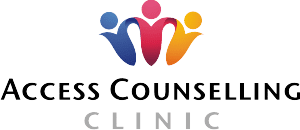If you have found yourself asking, “how can I save my marriage?” or if you are wondering if your relationship is going to make it through the next year, then it might be time for marriage counselling. Many couples find marriage counselling in Dublin quite useful for many reasons. Among other things, counsellors help couples learn how to communicate better, how to resolve conflict within the relationship in a healthy way, and how to listen more carefully.
The goal of most counsellors is not necessarily to fix a couple’s issues but rather help them figure out how they can work together and communicate better to overcome their problems successfully.
How Does Marriage Counselling in Dublin Typically Work?
Typically, counselling sessions are held weekly and last around 45 to 90 minutes. Your counsellor will help you to clarify the problems in your relationship by asking questions, helping you to understand how you feel and exploring possible solutions. He or she will treat all information as confidential unless he or she believes that either of you is at risk of harm.
How Long Will Marriage Counselling in Dublin Take?
The number of counselling sessions you will need depends entirely on your situation. Marriage counselling is a process which takes time to work through. You may need to attend a few sessions before you see results.
A marriage counsellor cannot guarantee that your problems can be solved in a certain number of sessions, as every client has their own individual issues and the counselling process can vary according to these factors. Ultimately, how long you stay in marriage counselling is up to you.
Be Open and Honest with Your Marriage Counsellor
Marriage counselling can help, if you are open and honest with your counsellor. The counsellor’s role is purely to help you communicate better, they will not take sides. They will give you tips and guidance on how to be more mindful of each other and understand one another better.
How to Choose a Marriage Counsellor in Dublin
Choose a counsellor who is a member of a professional association. This will ensure that the counsellor has had sufficient training and follows ethical guidelines, and that he or she maintains their skills through continuous learning and development. The main bodies are IAHIP (Irish Association for Humanistic and Integrative Psychotherapy) and IACP (Irish Association of Counselling and Psychotherapy).
Make sure the counsellor is experienced. Ask them how long they have been in practice, what areas they specialise in, if they work with individuals or couples, what kind of issues they deal with most frequently etc.
Go for someone you feel comfortable with. You don’t have to get along like best friends but you do need to feel safe enough to disclose difficult issues. So spend some time talking about your situation on the phone before committing to an appointment to gauge this comfort level.
Do you plan to have marriage counselling in Dublin? Call us now on 01 5240708 and let us talk about how our experienced counsellors can help you.



